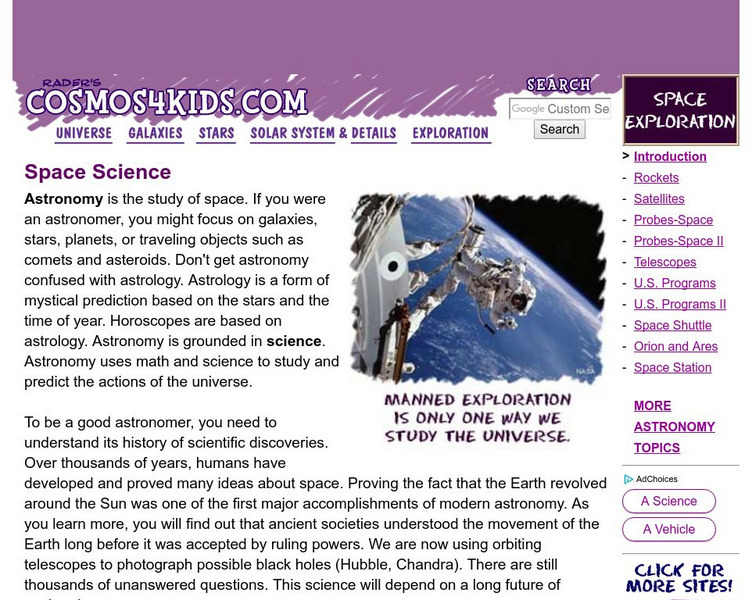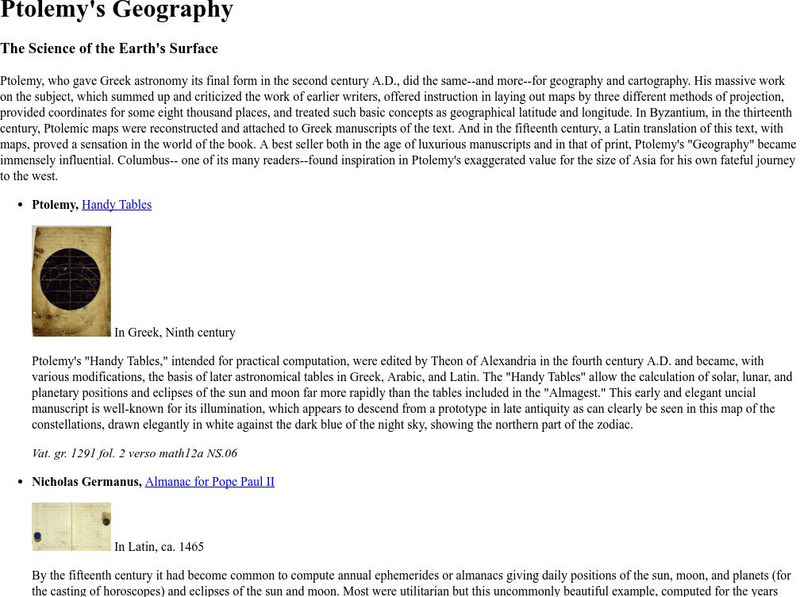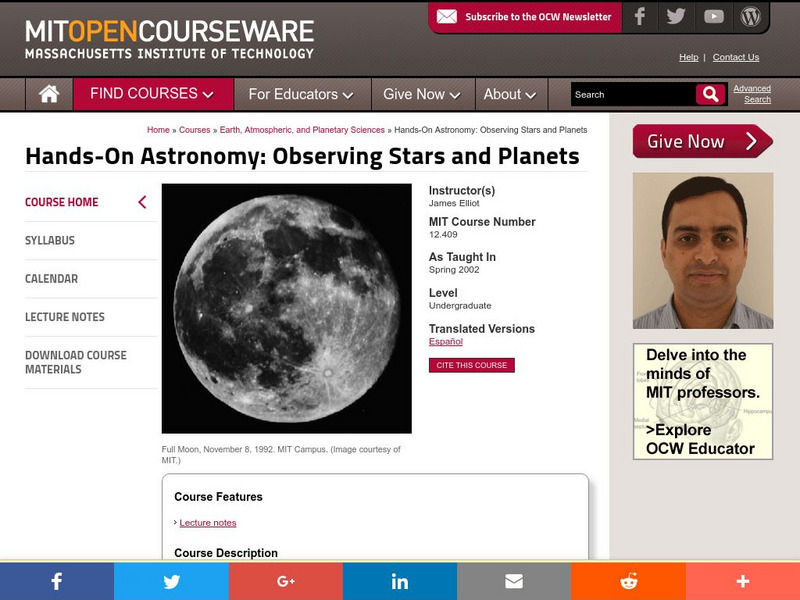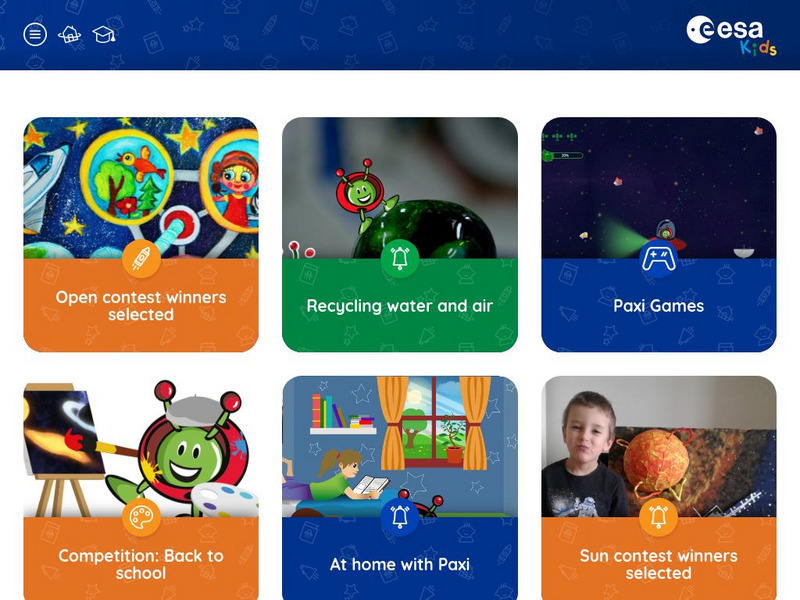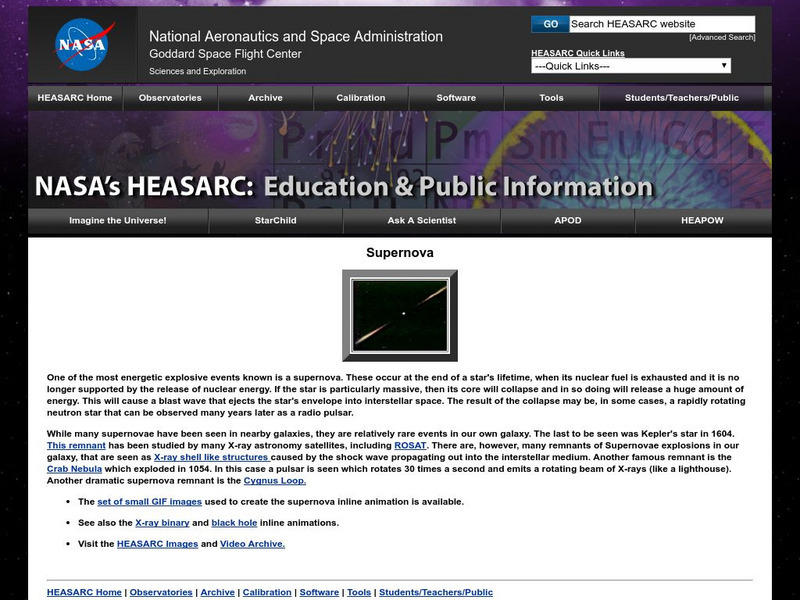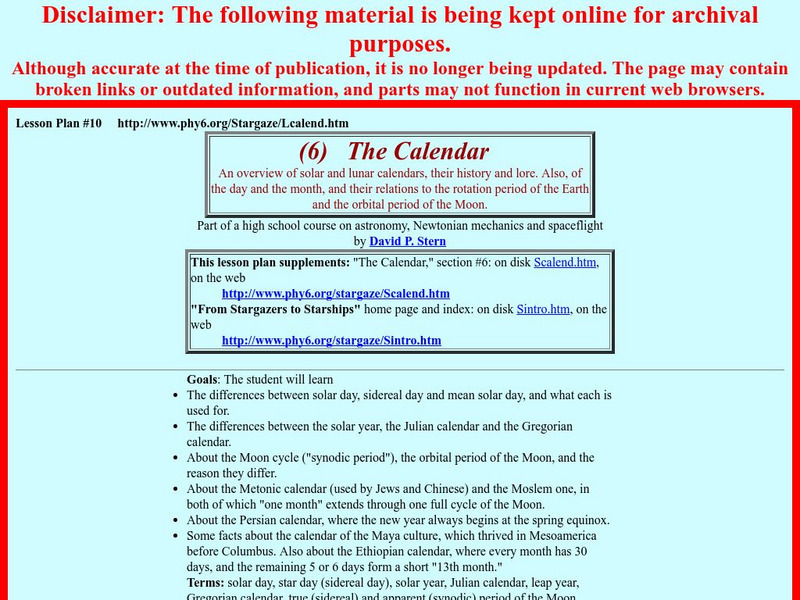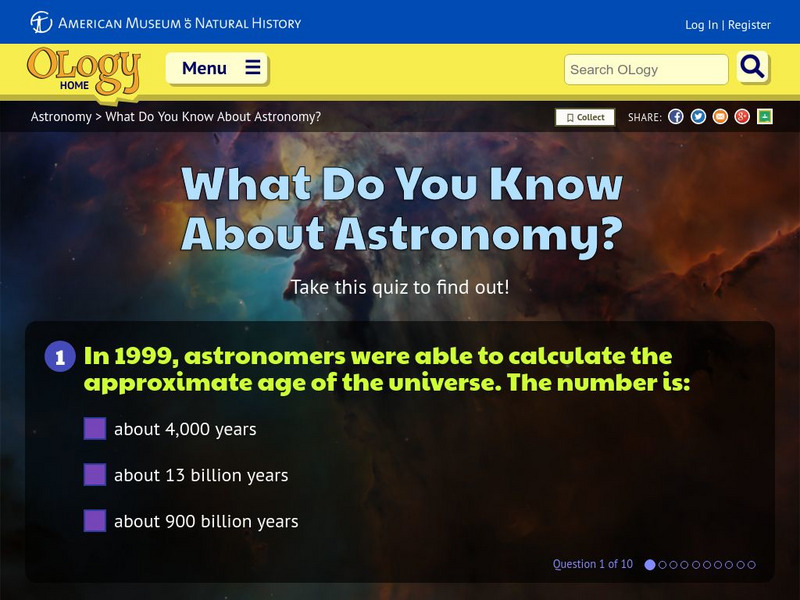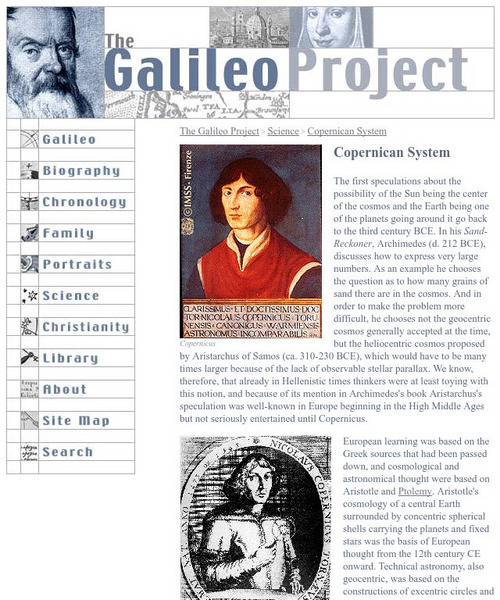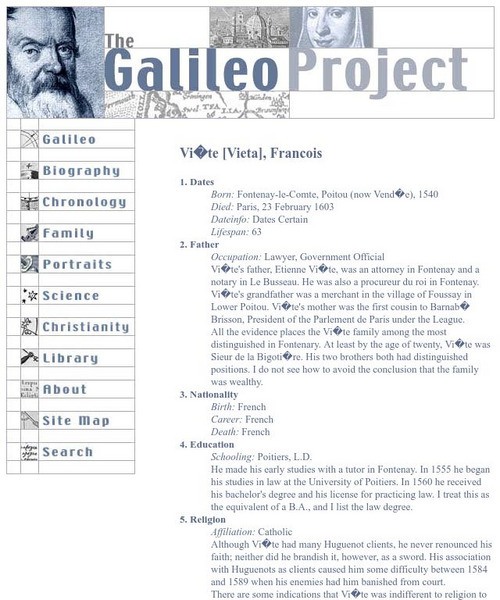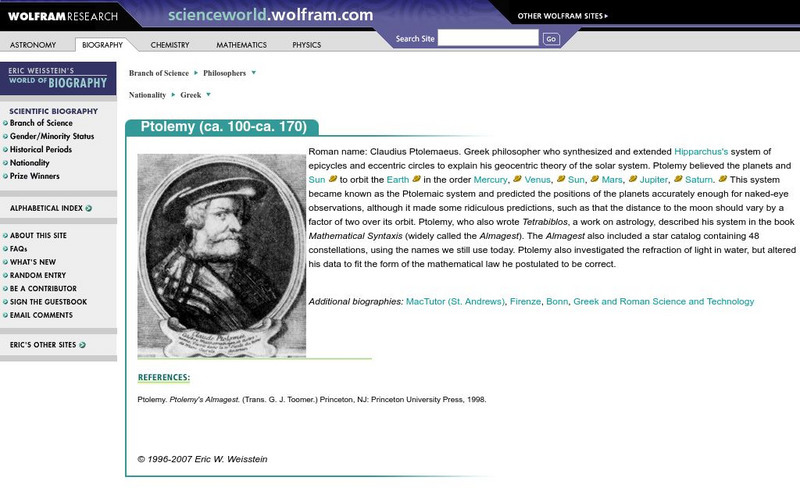Harvard University
Smithsonian Astrophysical: Chandra X Ray Observatory
Chandra X-Ray Observatory is an space observatory designed to detect x-rays. The public web site gives information about Chandra and X-ray astronomy in general (in field guide). It also gives educational materials for teachers.
PBS
Pbs: A Science Odyssey
Website for the PBS series "A Science Odyssey." Numerous opportunities to explore the people and discoveries of science.
Cosmos 4 kids
Cosmos4 kids.com: Solar System Details
This comprehensive site delves into other aspects of our solar system besides the planets and the sun. Click on the topics on the right like solar winds, the heliosphere, the heliopause, asteroids, comets, and more.
Cosmos 4 kids
Cosmos4 kids.com: Exploration
Space can be explored in many different ways. Read about space exploration and click on the topics on the right margin to find out how man finds out about his universe.
ibiblio
Ibiblio: Ptolemy's Geography
Brief discussion about Ptolemy's geography. Includes pictures of publications from ancient Greece based on Ptolemy's beliefs.
Massachusetts Institute of Technology
Mit: Open Course Ware: Hands on Astronomy: Observing Stars and Planets
A university-level course in basic observational procedures in astronomy. Covers how to use a telescope, and includes lecture notes.
European Space Agency
European Space Agency: Esa Kids
Multilingual site with articles, news. images, games, and activities about the universe, life in space, the Earth, space exploration, and related topics.
NASA
Heasarc: Supernova
Describes the most energetic explosive event in outer space: the supernova. Includes animation of a supernova.
Houghton Mifflin Harcourt
Harcourt: Biographies: Benjamin Banneker 1731 1806
Provides an overview of the life of Benjamin Banneker in an easy to read format. Learn why he was an accomplished mathematician, astronomer, surveyor, and almanac writer.
NASA
Nasa: From Stargazers to Starships: The Calendar
A lesson plan that gives an overview of solar and lunar calendars, their history and lore. Also, of the day and the month, and their relations to the rotational period of the Earth and the orbital period of the Moon.For versions in...
McGraw Hill
Mc Graw Hill: Astronomy Timeline
A comprehensive timeline c30,000 B.C.-2002 A.D. for those studying the history of astronomy.
E-learning for Kids
E Learning for Kids: Science: Madagascar: What Is the Solar System?
Patrick loves being a pirate, but he'd prefer to be an astronomer. Join him, and learn about everything high in the sky like the moon, stars, and asteroids.
National Endowment for the Humanities
Neh: Edsit Ement: Galileo: Revealing the Universe
In this lesson plan, middle schoolers will consider "Galileo: Revealing the Universe." The plan includes worksheets and other student materials that can be found under the resource tab.
American Museum of Natural History
American Museum of Natural History: O Logy: What Do You Know? Astronomy
Take this ten-question self-scoring quiz to test your knowledge of astronomy facts: age of the universe, why stars and planets are spheres, where other life might exist in the outer space, the Milky Way, and more.
Rice University
Galileo Project: The Copernican System
This site from The Galileo Project of Rice University contains information relating to Copernicus's sun-centered solar system theory. Pictures are provided throughout this article along with links to additional information.
Rice University
Galileo Project: Francois Viete
This site from The Galileo Project of Rice University provides a brief overview of Francois Viete, displayed as ten biographical topics. The fields of data collected include topics such as birth/death dates, father, nationality,...
Rice University
Galileo Project: Isaac Newton
This site from the Galileo Project of Rice University is a sort of encyclopedic entry that outlines important information about Newton's life and work. The information is presented in a list format and is worth checking out.
Rice University
Galileo Project: Galileo Galilei
This site from The Galileo Project of Rice University contains information about Galileo's lifespan, father, nationality, education, religion, scientific disciplines, means of patronage, patronage, technological involvement, and...
Rice University
Galileo Project: Christopher Clavius
This site from the Galileo Project of the Rice University provides a biography of Christopher Clavius in list format. The information is medium in length and worth checking out for information on the subject.
Rice University
Galileo Project: The Ptolemaic System
This site from The Galileo Project of Rice University provides this discourse on the Ptolemic System that attempted to explain the motion of heavenly bodies. Pictures, charts, and links are all provided for additional information.
Wolfram Research
Wolfram Science World: Ptolemy (Ca. 100 Ca. 170)
A very brief description of Ptolemy's role in researching astronomy. Links to related information.
University of Virginia
University of Virginia: Lecture on Kepler
The University of Virginia provides a continuation of a lecture given on astronomer Johannes Kepler, this lecture covers his different works within the field of astronomy.
University of California
At Home Astronomy: Hands on Science Experiments for the Entire Family
A collection of ten hands-on science experiments for the entire family that will help you understand concepts in astronomy. Make an astrolabe, find the size of the sun and moon, build a lunar settlement, find out about meteoroids, shadow...
American Museum of Natural History
American Museum of Natural History: O Logy: What's the Big Idea? Astronomy
An introduction to key concepts about the science of astronomy. With interactive flash cards that open in new windows to help you learn more.



